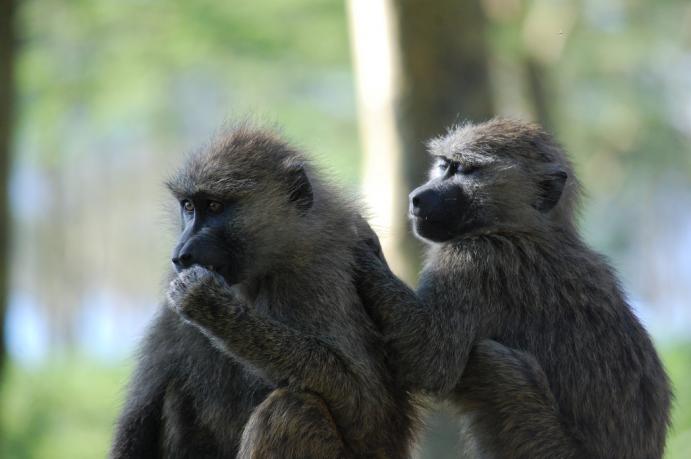Community: Survival of the Nicest

In this article in Science Magazine, Elizabeth Norton comments on the findings by Seyfarth, Silk, and Cheney on how certain organisms increase their chances of survival by being nice to their peers.
 (http://www.flickr.com/photos/scubagirl66/7929180596/)
(http://www.flickr.com/photos/scubagirl66/7929180596/)
- “Baboons, like people, really do get by with a little help from their friends. Humans with strong social ties live longer, healthier lives, whereas hostility and “loner” tendencies can set the stage for disease and early death.”
- “In animals, too, strong social networks contribute to longer lives and healthier offspring—and now it seems that personality may be just as big a factor in other primates’ longevity status.”
- “A new study found that female baboons that had the most stable relationships with other females weren’t always the highest up in the dominance hierarchy or the ones with close kin around—but they were the nicest.”
The pragmatic rule: That it is good for your survival to be nice to others,
is particularly true when you live in a society where cooperation increases
your chances of being alive tomorrow.
In this context, Niceness arises not out of a moral imperative but out of
rational and practical self-interest. A concept that today is known as:
This is better understood by thinking about Self-Interest in the long term,
or as Robert Axelrod put it: by considering The Shadow of the Future,
when we make decisions about whether we cooperate with others or not.
This is something that struck the Frenchman Alexis de Tocqueville when
he was writing his observations about Democracy in America in 1836.
In his chapter:
“How the Americans Combat Individualism
by the Principle of Self-Interest Rightly Understood”
He wrote
“..and it is held as a truth that man serves himself in serving
his fellow creatures and that his private interest is to do good”
Benjamin Franklin put it in a shorter form as:
“Do Well, by Doing Good”